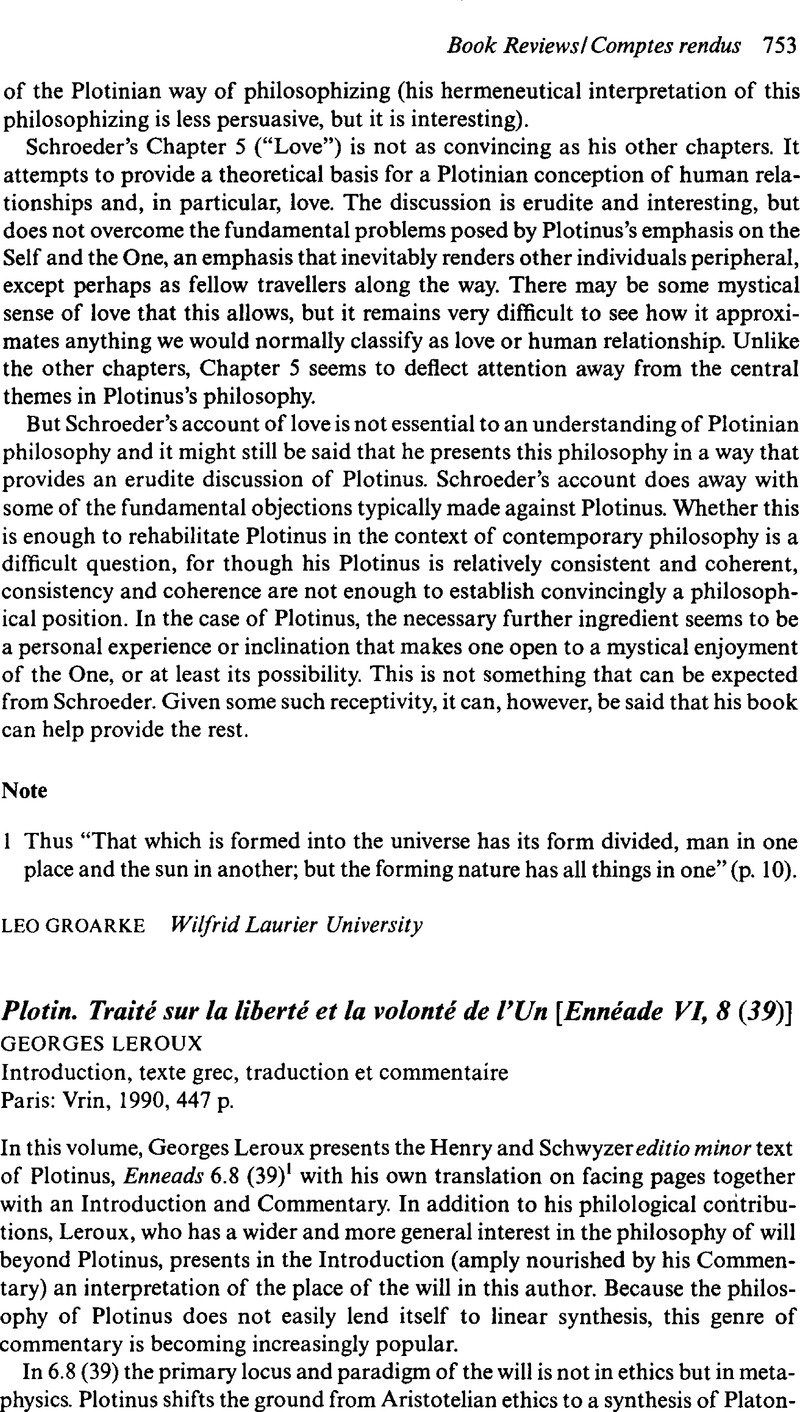No CrossRef data available.
Article contents
Plotin. Traité sur la liberté et la volonté de l'Un [Ennéade VI, 8 (39)]Georges Leroux Introduction, texte grec, traduction et commentaire Paris: Vrin, 1990, 447 p.
Published online by Cambridge University Press: 13 April 2010
Abstract

- Type
- Book Reviews/Comptes rendus
- Information
- Dialogue: Canadian Philosophical Review / Revue canadienne de philosophie , Volume 33 , Issue 4 , Fall 1994 , pp. 753 - 755
- Copyright
- Copyright © Canadian Philosophical Association 1994
References
Notes
1 Henry, P. and Schwyzer, H.-R., Plotini Opera, Oxford Classical Texts, 3 vols. (Oxford: Oxford University Press, 1964–1982), Vol. 3 (1982).Google Scholar
2 See my “Representation and Reflection in Plotinus,” Dionysius, 4 (1980): 37–59.Google Scholar
3 Cf. Trouillard, J., “Valeur critique de la mystique plotinienne,” Revue Philosophique de Louvain, 59 (1961): 431–44CrossRefGoogle Scholar; Armstrong, A. H., “Neoplatonic Valuation, Nature, Body and Intellect,” Augustinian Studies, 3 (1972): 35–49CrossRefGoogle Scholar; and my Form and Transformation: A Study in the Philosophy of Plotinus (Montreal and Kingston: McGill-Queen's University Press, 1992), pp. 89–90.Google Scholar
4 Cf. Whittaker, J., “Platonic Philosophy in the Early Empire,” Aufstieg und Niedergang der Römischen Welt, II.36.1, edited by Haase, W. (Berlin: de Gruyter, 1987), pp. 83–102.Google Scholar
5 On the dangers of seeing the influence of Alexander in Plotinus, despite Porphyry's statement in the Vita Plotini 14 that Alexander was among the authors read by Plotinus and his circle, see Schroeder, F. M. and Todd, R. B., Two Greek Aristotelian Commentators on the Intellect with Introduction, Translation, Commentary and Notes (Toronto: Pontifical Institute of Mediaeval Studies, 1990), pp. 1–2Google Scholar; on the further question of the authenticity of the writings in the De Anima Mantissa and Quaestiones, see ibid., pp. 21–22; in ibid., pp. 1–31, I question the authorship by Alexander of the De Intellectu, a treatise contained in the De Anima Mantissa.


